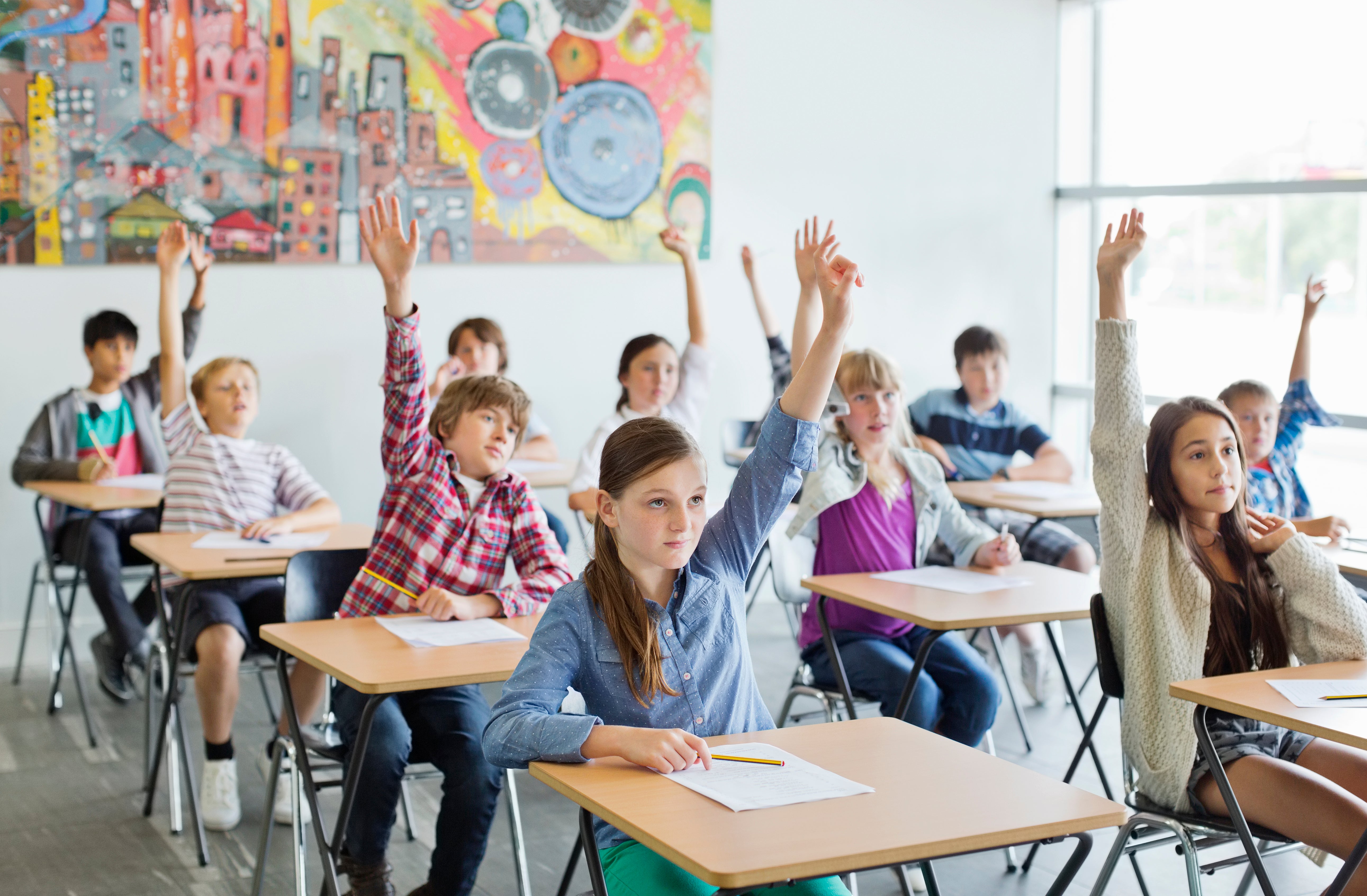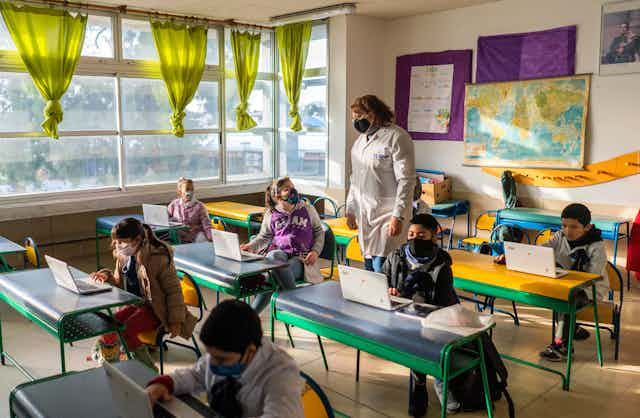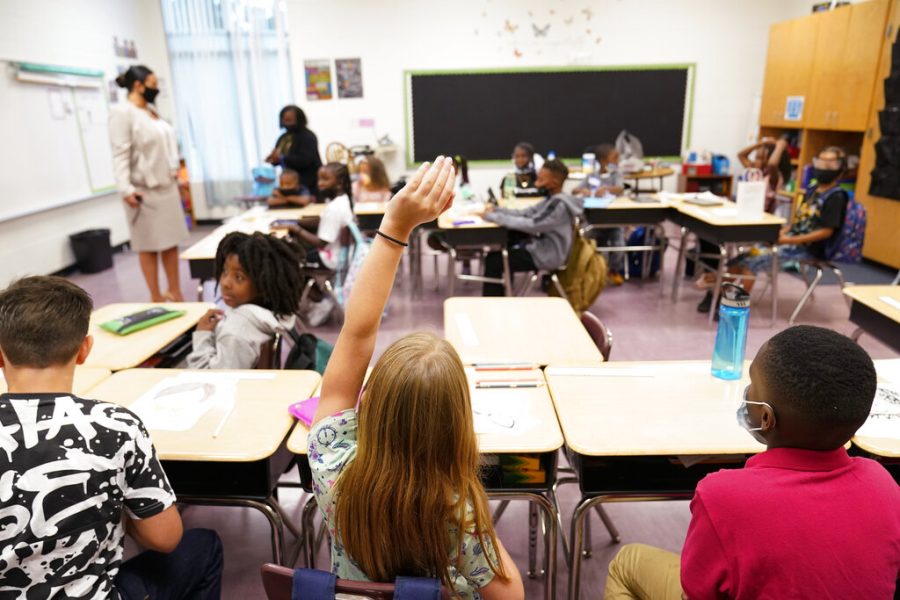Why It's Vital to Rally Together to Save Temecula Schools
Wiki Article
Comprehending the Relevance of Colleges in Youngster Development and Neighborhood Development
Schools offer as pivotal institutions for kid development and area growth, supplying settings where scholastic success are complemented by the growing of social skills and exposure to varied viewpoints. These educational settings not only advertise crucial reasoning and reliable communication yet also foster empathy through collective jobs. Furthermore, schools' interaction with regional areas with service-learning initiatives strengthens the bond between families and universities. This symbiotic partnership underscores the significance of schools in supporting energetic citizenship and long-lasting understanding habits. What are the certain systems by which these organizations achieve such extensive effects?Academic Achievement
Academic success functions as a foundation of youngster growth, offering the foundation upon which future learning and success are constructed. Schools play a critical role in fostering this academic development, providing structured environments where children can acquire vital expertise and cognitive abilities. Standardized educational program ensure that trainees gain effectiveness in core subjects such as mathematics, scientific research, and language arts, which are vital for both greater education and expert opportunities.In addition to presenting essential scholastic skills, institutions additionally grow crucial thinking, analytic capacities, and intellectual interest. These cognitive proficiencies are vital for browsing complicated real-world circumstances and adapting to the ever-evolving demands of the modern-day workplace. Teachers, as facilitators of learning, use diverse pedagogical methods to accommodate varied knowing designs, thereby optimizing private pupil capacity.
Moreover, scholastic success is very closely linked to self-worth and motivation. Kids that experience scholastic accomplishments are more probable to establish a positive self-concept and a long-lasting interest for discovering. Colleges likewise use various sources, such as libraries and modern technology, which better improve the instructional experience and prepare pupils for a highly advanced society.
Social Ability Development
Beyond academic success, the function of institutions in social ability development is important. Schools work as a key place for children to learn and exercise crucial social skills such as communication, conflict, and cooperation resolution. In the organized atmosphere of a classroom, pupils interact with peers, teachers, and various other college staff, offering numerous possibilities to establish these critical capacities.Reliable social skill advancement in colleges is assisted in through group activities, collaborative projects, and extracurricular programs. These communications help trainees understand social norms, construct compassion, and foster a feeling of area. As an example, group tasks educate pupils how to function together towards an usual goal, listen to various perspectives, and browse disputes constructively.

The farming of social skills during institution years lays a foundation for future individual and specialist connections. Save Temecula Schools. As students develop, the capability to properly communicate and collaborate comes to be progressively vital, highlighting the institution's critical function in holistic child development
Exposure to Variety
Exposure to diversity in schools is fundamental to promoting an see this inclusive attitude and widening pupils' point of views. Schools work as a microcosm of the broader society, and encountering diverse societies, languages, and socioeconomic backgrounds within this atmosphere gears up pupils with vital skills for navigating a progressively globalized world. This direct exposure motivates empathy, decreases bias, and advertises shared respect amongst peers.Research study indicates that trainees who interact with peers from diverse backgrounds exhibit better analytic skills and creative thinking. This understanding of diversity prepares trainees for future offices that worth multicultural capability - Save Temecula Schools.

Area Engagement
The benefits of varied classrooms prolong past the school wall surfaces, cultivating a solid feeling of area involvement among trainees. By engaging with peers from numerous social, socioeconomic, and ethnic backgrounds, students acquire a wider point of view and an appreciation for diversity. This direct exposure urges them to become active citizens that are willing to contribute positively to their neighborhoods.Schools that highlight neighborhood engagement commonly integrate service-learning projects, which allow pupils to resolve real-world troubles while applying academic skills. These tasks not just improve students' understanding of their coursework but also infuse a feeling of obligation and compassion. Partnerships in between institutions and local organizations supply students with possibilities to take part in community events, even more strengthening their function as proactive neighborhood participants - Save Temecula Schools.
In addition, parental and area involvement in colleges read more enhances the bond between universities and the communities they serve. They create a collective setting that profits all stakeholders when colleges open their doors to community events, workshops, and volunteer possibilities. This mutual support group ensures that trainees obtain alternative advancement, preparing them to end up being well-shaped individuals who contribute and value to their communities. With these initiatives, schools play a critical duty in nurturing neighborhood involvement and fostering societal growth.
Lifelong Discovering Routines
Creating long-lasting learning routines is crucial for a child's continual growth and versatility in an ever-changing globe. Institutions play a critical function in instilling these routines by creating an environment that cultivates interest, important thinking, and a love for understanding. Via varied educational programs and extracurricular tasks, instructors motivate pupils to explore various topics, assess details seriously, and apply their learning to real-world situations.
Additionally, schools provide an organized atmosphere where children can create self-control and time administration skills, both of which are crucial for continual learning. By highlighting the significance of setting goals, reviewing progression, and adapting techniques, schools prepare trainees to browse the complexities of adult life, ensuring they remain long-lasting students and contributors to society.
Verdict
In verdict, colleges are essential in cultivating kid advancement and community growth by providing environments conducive to academic accomplishment, social ability growth, and direct exposure to diversity. Eventually, institutions cultivate lifelong learning practices, equipping individuals with the required knowledge and skills to add favorably to culture.In the organized setting of a class, pupils engage with peers, educators, and various other school team, providing numerous opportunities to establish these essential abilities.
In essence, exposure to diversity within colleges not just enriches individual students but also enhances the social textile of the area as a whole.
The benefits of varied class prolong beyond the institution walls, cultivating a strong feeling of neighborhood engagement among trainees.Colleges that highlight neighborhood interaction my blog frequently integrate service-learning projects, which allow trainees to address real-world issues while applying academic abilities. Collaborations between institutions and local organizations provide trainees with possibilities to get involved in area occasions, further strengthening their function as aggressive area participants.
Report this wiki page